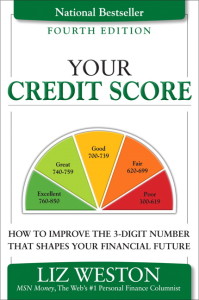 I’ll be featured as the guest expert on Experian’s #CreditChat at 3 p.m. Eastern today. I’ll be tweeting advice and tips about a bunch of important issues, including:
I’ll be featured as the guest expert on Experian’s #CreditChat at 3 p.m. Eastern today. I’ll be tweeting advice and tips about a bunch of important issues, including:
· When to focus on savings and when to pay down debt
· What debts to tackle first and which can wait
· What to do about your student loans
· What you should know before applying for a mortgage or auto loan
· What to do if you’re drowning in debt
So come chat with me! Easy ways to follow the conversation include Twubs or tchat. I’ll look forward to hearing from you.




